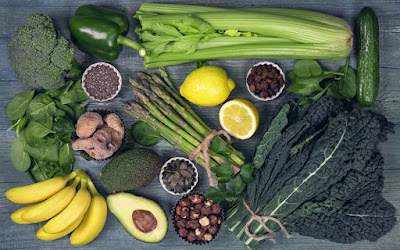300x600
The alkaline diet is based on the theory that because your blood is slightly alkaline -- the opposite of acidic -- eating foods that match the alkalinity of your blood contributes to health. Proponents claim an alkaline diet reduces the risk of chronic diseases, such as heart disease and cancer, as well as boosts energy and promotes weight loss. To date, there is no evidence to support these claims.

Where it Came From
The idea that acidic foods can promote cancer by making the body's pH too acidic is a myth, according to the American Institute for Cancer Research. This theory is based on laboratory experiments that suggest cancer cells thrive in an acidic environment and cannot survive under alkaline conditions. The problem is, this only applies to an isolated lab setting. It's impossible to alter a body's cell environment in such a way, according to the institute. Your blood may become slightly acidic after eating certain foods, according to the Canadian Cancer Society. But your body uses a complex system to ensure blood pH remains within a healthy range.
What it Involves
The alkaline diet is not based on whether the food itself is acidic but rather whether it creates an acidic environment in the body. Citrus fruit is naturally acidic, but when eaten it contributes to an alkaline environment, according to the University of California, San Diego. The alkaline diet involves eating alkaline-producing foods, such as certain fresh fruits, vegetables, roots, tubers, nuts and legumes, while limiting the amount of acid-producing foods you eat, such as meat and dairy products.
What the Science Says
Researchers examined the potential health benefits of an alkaline diet and in relation to cancer and found no scientific literature showing any benefit in consuming an alkaline diet for the prevention of cancer. They did mention that in a clinical situation, using sodium bicarbonate may improve the effectiveness of chemotherapy drugs. Sodium bicarbonate is an acid buffer used to make blood less acidic in certain conditions. The study was published in the "Journal of Environmental and Public Health," volume 2012.
Diet and Cancer Risk
Your diet can have a strong influence on cancer risk, but the acidity or alkalinity of food is not what matters, says the American Institute for Cancer Research. The best advice is to eat a well-balanced diet with plenty of fruits and vegetables. Certain types of vegetables, such as the cruciferous variety, are not only nutrient-dense but contain compounds that may fight cancer, according to the National Cancer Institute. This family of vegetables includes broccoli, kale, collards, cabbage, turnips, arugula, bok choy, brussels sprouts and cauliflower.

Where it Came From
The idea that acidic foods can promote cancer by making the body's pH too acidic is a myth, according to the American Institute for Cancer Research. This theory is based on laboratory experiments that suggest cancer cells thrive in an acidic environment and cannot survive under alkaline conditions. The problem is, this only applies to an isolated lab setting. It's impossible to alter a body's cell environment in such a way, according to the institute. Your blood may become slightly acidic after eating certain foods, according to the Canadian Cancer Society. But your body uses a complex system to ensure blood pH remains within a healthy range.
What it Involves
The alkaline diet is not based on whether the food itself is acidic but rather whether it creates an acidic environment in the body. Citrus fruit is naturally acidic, but when eaten it contributes to an alkaline environment, according to the University of California, San Diego. The alkaline diet involves eating alkaline-producing foods, such as certain fresh fruits, vegetables, roots, tubers, nuts and legumes, while limiting the amount of acid-producing foods you eat, such as meat and dairy products.
What the Science Says
Researchers examined the potential health benefits of an alkaline diet and in relation to cancer and found no scientific literature showing any benefit in consuming an alkaline diet for the prevention of cancer. They did mention that in a clinical situation, using sodium bicarbonate may improve the effectiveness of chemotherapy drugs. Sodium bicarbonate is an acid buffer used to make blood less acidic in certain conditions. The study was published in the "Journal of Environmental and Public Health," volume 2012.
Diet and Cancer Risk
Your diet can have a strong influence on cancer risk, but the acidity or alkalinity of food is not what matters, says the American Institute for Cancer Research. The best advice is to eat a well-balanced diet with plenty of fruits and vegetables. Certain types of vegetables, such as the cruciferous variety, are not only nutrient-dense but contain compounds that may fight cancer, according to the National Cancer Institute. This family of vegetables includes broccoli, kale, collards, cabbage, turnips, arugula, bok choy, brussels sprouts and cauliflower.


